News and agenda
15 December 2020
Peter Steeneken in various media
08 December 2020
Miguel Bessa and Richard Norte have been awarded the Interstellar Initiatives Grant

Miguel Bessa and Richard Norte have been awarded an Interstellar Initiatives Grant from the Limitless Space Institute. The award is for their research ‘Origami Photonic Crystal Sails with Machine Learning’. Their research focus is about the development and demonstration of nanoscale origami photonic crystal membranes using data-driven machine learning.
19 November 2020
New sensor chips: low-cost, smart and efficient
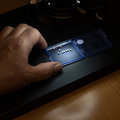
A chip with a built-in sensor that is so sensitive that it registers a single coronavirus particle. At TU Delft, several researchers in various faculties, including Frans Widdershoven (EW), Peter Steeneken, professor Dynamics of Micro and Nanosystems and Murali Ghatkesar (PME/3mE) are working on this research.
12 November 2020
Regine Vroom in Computer Idee
04 June 2020
Micro-pipette probe for tuning the volume and particle concentration of liquids
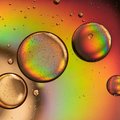
At the PME department, a micro-sized pipette probe has been developed for handling multiple liquids. It is the first time that such a small probe can dose fluid volume, and simultaneously control the concentration of particles inside the fluid.
30 January 2020
Angelo Accardo wins TU Delft Health Initiative Pilot Award

Angelo Accardo, expert in the area of Soft Micro- and Nano-system Technology for Life Sciences and Biology, received the TU Delft Health Initiative Pilot award. His pilot project will be about his research on the creation of standardized, reproducible and physiologically relevant 3D engineered cell microenvironments (3D Onco-Scaffolds) to be used as a benchmark tool for proton Radiobiology.
05 December 2019
Towards single-cell biopsy with 3D printing

Murali Ghatkesar, assistant professor in the Department of Precision and Microsystems Engineering, has developed a new method through 3D printing that makes it easier, quicker and more efficient to perform single-cell biopsies. It is the first time that 3D printing is being used for the production of micro- and nanofluidic equipment. The results of his research were published in the scientific journal Lab on a Chip this month.
04 December 2019
Microchip for room temperature quantum internet
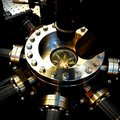
A key requirement for a future quantum internet is that it will be widely accessible and affordable. This requires the ability to prepare mechanical systems in their lowest possible energy state (the quantum ground state) without expensive cryogenics.
15 November 2019
How to Expand and Contract Curved Surfaces of all Shapes
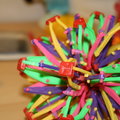
Researchers at TU Delft have designed a dilation method that can be applied to any curved surface. The range of applications include medical braces for children, expandable furniture, or aortic stents.
15 February 2018
Small droplets for better crystals
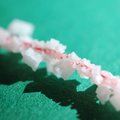
Sometimes it’s not just the chemical composition of a substance that matters but also the way in which the ingredients are ordered at the atomic level: the crystal structure. For example, the wrong crystal structure of one and the same material could mean the difference between an effective and a failed drug.